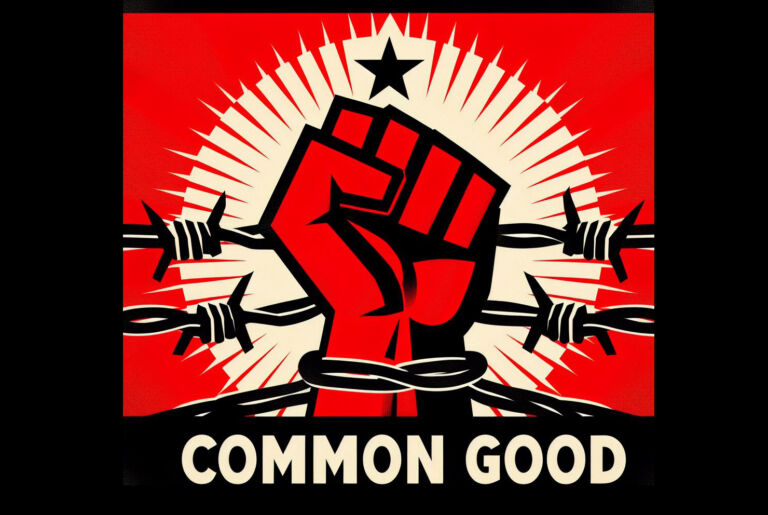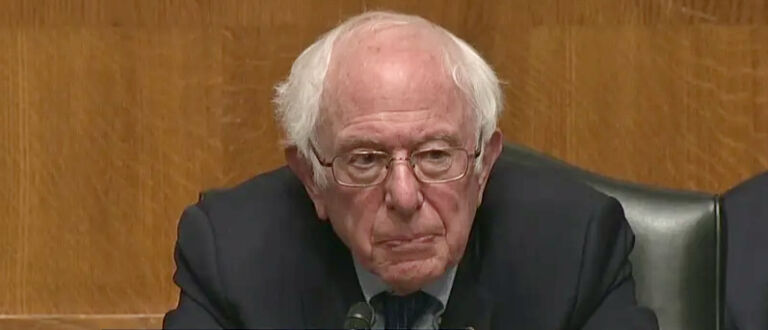Reportedly, Americans are more interested in socialism now. How much that is actually true, I don’t know. Media political reporting today contains so much projection, it’s hard to tell.
Also, as Roy Cordato explained in RealClearPolicy in July, and as Gallup showed in October, most people who think they like socialism don’t even know what it is. What they think they want, Cordato wrote, is “unshackled welfare statis[m]” or “outcome-based egalitarianism,” or as Pew described it, “equality for everyone.”
That’s not socialism, Cordato pointed out. That’s dirigisme, a term that sounds to most people like sneezing with a mouthful of noodles.
As Encyclopedia.com puts it, “dirigisme describes an economic system in which the government is omnipresent and assumed to be omnipotent.”
Whatever you want to call it, when Americans celebrate Thanksgiving next week, they will be participating in a holiday rooted in thanking God that we got away from such foolishness four centuries ago before it killed us all.
Socialism nearly killed us; private property saved us
As you know, Thanksgiving originated with the Pilgrim setters of Plymouth. Originally, the Pilgrims set up their land ownership to be fair and equal. Everyone would share the work and share the produce from the work equally. Does that notion sound familiar?
Like today’s idealistic self-described socialists with your work, no one had any problem with everyone sharing the rewards from work. What people did have a problem with was sharing in the work.
It didn’t take long to realize that shirking, avoiding work, and slacking off had the same reward as working hard. So people faked illness, they begged off, they complained of wasting their efforts on other people’s families, they compared their lot to slavery, and sometimes they even stole.
And what was the consequence? Under equality for everyone, they suffered a famine lasting two years that threatened to stretch into three or more. Half the settlers were already dead.
Gov. William Bradford recorded their desperate turn away from socialism:
All this while no supply was heard of, neither knew they when they might expect any. So they began to think how they might raise as much corn as they could, and obtain a better crop than they had done, that they might not still thus languish in misery.
At length, after much debate of things, the Governor (with the advice of the chiefest amongst them) gave way that they should set corn every man for his own particular, and in that regard trust to themselves; in all other things to go on in the general way as before. And so assigned to every family a parcel of land, according to the proportion of their number, for that end, only for present use (but made no division for inheritance) and ranged all boys and youth under some family.
You see? They moved to private ownership and private farming, letting everyone work for themselves and their own families.
Now, it would be another century and a half before Adam Smith would publish his insight into how leaving people free to look out for their own self-interests actually benefits society better than trying to have government direct all resources. But here’s what Smith said anyway, as he wrote about how an individual unintentionally promotes the public interest by using his own property in working for his own self-interest:
… he intends only his own gain, and he is in this, as in many other cases, led by an invisible hand to promote an end which was no part of his intention. Nor is it always the worse for the society that it was no part of it. By pursuing his own interest he frequently promotes that of the society more effectually than when he really intends to promote it. (Wealth of Nations, Book Four, Chapter II)
Smith explained how people, acting in their own self-interest, can bring about beneficial results for society without even trying:
Whoever offers to another a bargain of any kind, proposes to do this. Give me that which I want, and you shall have this which you want, is the meaning of every such offer; and it is in this manner that we obtain from one another the far greater part of those good offices which we stand in need of. It is not from the benevolence of the butcher, the brewer, or the baker, that we expect our dinner, but from their regard to their own interest. We address ourselves, not to their humanity but to their self-love, and never talk to them of our own necessities but of their advantages. (Book One, Chapter II)
But Plymouth’s leaders didn’t know that. All they knew was, they were sharing everything equally, and they were dying from it. They had to try something.
So they tried letting people own their own land and the results of their own labor.
BOOM.
Bradford wrote:
This had very good success, for it made all hands very industrious, so as much more corn was planted than otherwise would have been by any means the Governor or any other could use, and saved him a great deal of trouble, and gave far better content.
There it is. Government couldn’t have done it by any means. People were far more productive for society looking after themselves that government was looking after everyone.
Continuing:
The women now went willingly into the field, and took their little ones with them to set corn; which before would allege weakness and inability; whom to have compelled would have been thought great tyranny and oppression.
People voluntarily worked when they reaped the reward from their efforts. They found reasons to work, not reasons to shirk.
And come harvest-time, the results were in:
By this time harvest was come, and instead of famine, now God gave them plenty, and the face of things was changed, to the rejoicing of the hearts of many, for which they blessed God.
And the effect of their particular planting was well seen, for all had, one way and other, pretty well to bring the year about, and some of the abler sort and more industrious had to spare, and sell to others, so as any general want or famine hath not been amongst them since to this day.
The first Thanksgiving was held that year, in 1623.

